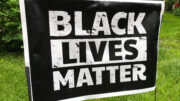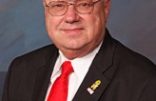By Jeffrey A. Roberts
CFOIC Executive Director
A Colorado legislative committee Tuesday advanced a bill aimed at stopping Internet sites from publishing mug shots and then charging fees to take them down.
HB 14-1047 cleared the House Business, Labor, Economic and Workforce Development Committee on a 9-2 vote. It would require that commercial websites remove a booking photo free of charge if the arrested person makes a request in writing and that person was not charged with a crime, charges were dropped or the person was acquitted. An amendment added in committee also would require a photo’s removal without cost if a person’s criminal record has been sealed.
Mug shots taken when people are arrested and booked are public records in Colorado and in many other states. More than 80 websites have sprung up in recent years that publish booking photos scraped from jail websites, and many charge hundreds of dollars to remove them.
“It affects many innocent people, people who have never been convicted of a crime,” said the bill’s sponsor, Rep. KC Becker, D-Boulder. “…It can affect their ability to get a job or apply for a lease. One woman testified in another state that this affected her dating ability.”
Under the legislation, a website could be sued for damages for failing to comply.
Denise Maes, public policy director for the American Civil Liberties Union of Colorado, argued that the proposal would “run afoul” of commercial free-speech protections under the First Amendment.
“I think the premise and the purpose of this bill is a good one. Unfortunately, I think it attempts to get at a positive result by violating the First Amendment,” Maes said. She suggested stopping the problem “at the source” by doing something about the “irresponsible behavior of law enforcement agencies that put a mug shot of a simple arrestee in a digital format, which then permits it to be a public record and picked up and broadcast widely on websites.”
HB 14-1047 specifically exempts websites run by newspapers, periodicals, wire services, news syndicates and radio and TV stations. Maes said she is concerned that the bill, as worded, does not appear to exempt online-only publications such as the Huffington Post or the Colorado Independent.
“So it elevates the rights of certain press outlets and not others,” she argued.
Follow the Colorado Freedom of Information Coalition on Twitter @CoFOIC. Like CFOIC’s Facebook page. Do you appreciate the information and resources provided by CFOIC? Please consider making a tax-deductible donation.





